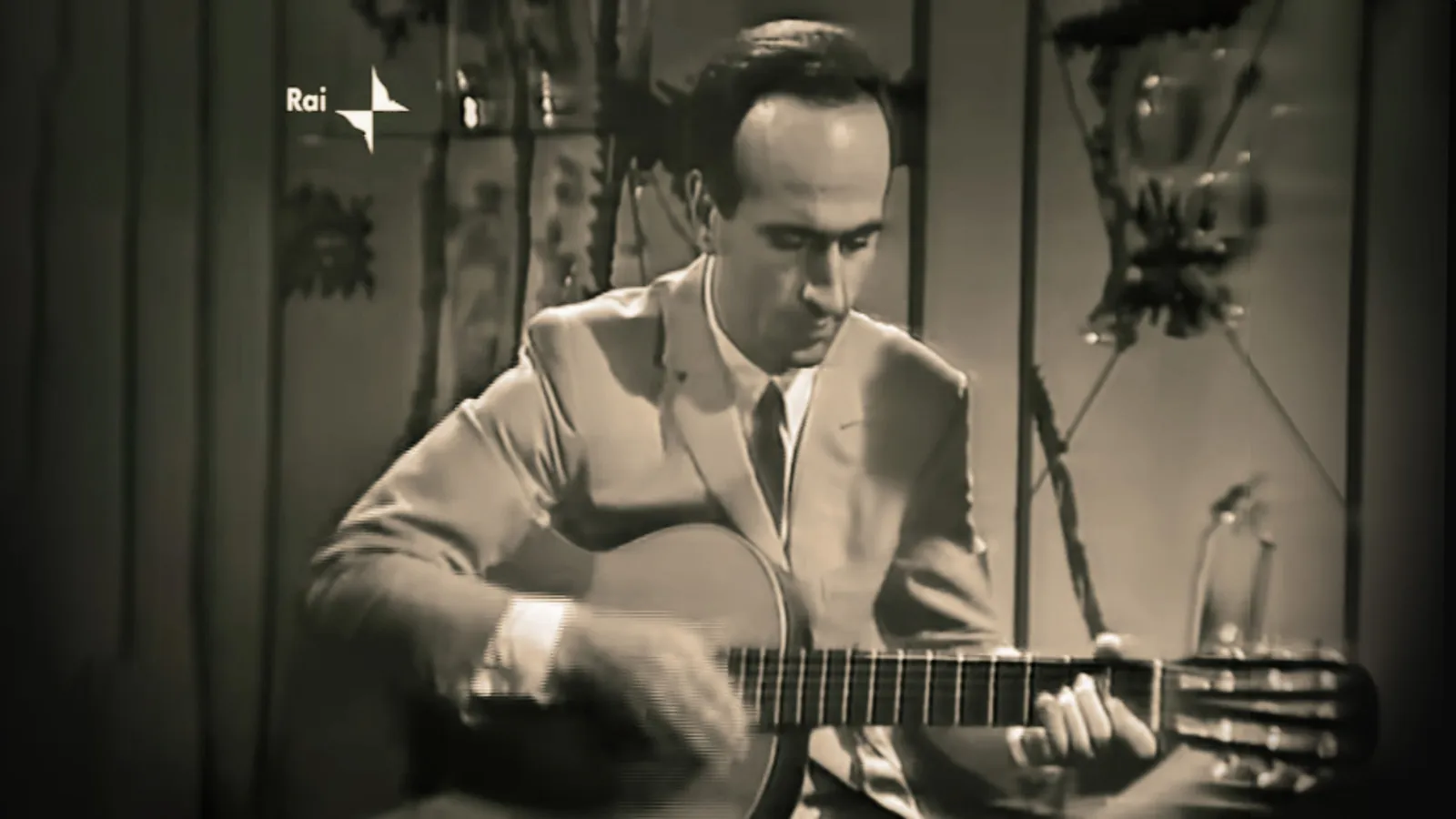Unexpected
Every now and again, the YouTube recommendation algorithm manages to serve up something astonishing.

Thanks to YouTube’s recommendation engine, I came across something which just floored me. It’s a clip from a 1965 Italian TV special called Chitarra, Amore Mio (“Guitar, My Love”).
In it, we are introduced to a modest, soft spoken man named Vittorio Camardese. We learn that he’s a doctor—a radiologist—working in San Filippo Hospital in Rome. Because of his work, he says he doesn’t travel to play music, despite all the stickers on his guitar case. The host asks him about a “particular technique” he uses when playing the guitar, and Dr. Camardese sheepishly says yes, he always plays this way, and that he is self taught. After a brief explanation and demonstration with a major scale, the host says “Let’s hear a piece”. The good doctor suggests a Mambo.
Then he plays…
I hope you watched that through to the end. I quite literally gasped the first time I saw it. This hit me hard on multiple levels.
When I was a kid, hearing the otherworldly sounds that Eddie Van Halen was able to coax out of an electric guitar for the first time transported me. I didn’t know sounds like that existed, much less that people could make them. I needed to learn how to do what he was doing. I soon got my first electric guitar and quickly learned about tapping. For the uninitiated, it’s a technique guitar players use where they tap notes on the fretboard with their picking hand, allowing them to play quick, wide interval arpeggios and lines, as well as percussive sounds. Eddie Van Halen uses it extensively and is widely considered to be a pioneer of the technique. When the first Van Halen album was released in 1978, guitarists everywhere were blown away when they heard what EVH could do with tapping. Many guitarists adopted the technique and some, like Steve Vai, took it even further than Eddie did.
For me, seeing what the humble autodidact, Doctor Camardese, was doing on his classical guitar, well over a decade before Eddie Van Halen popularized the technique, upended what I thought I knew about how this way of playing evolved.
Now, I’m not suggesting that Eddie Van Halen got it from hearing Dr. Camardese—he probably didn’t. As far as I can tell, aside from a few appearances on Italian Television, Camardese never recorded any of his playing and was unknown outside of Italy. Plus, there were other guitarists in the ’60s and ’70s who used versions of the technique in their own playing, albeit to a more limited degree than what either Van Halen or Camardese did. What fascinates me about this is the multiple discovery aspect of it, where disparate people can independently develop similar ideas more or less simultaneously.
The other thing that hit me about the video is that it’s a strong reminder that there is talent all around us that we don’t know about, or perhaps choose not to see. Most of Doctor Camardese’s patients likely never knew that he was a guitarist, much less that he was a mad genius at it. Perhaps his coworkers didn’t even know.
Every person you encounter has a story, most of which you have no idea about. Remembering that idea fosters empathy. To me, it also means that plenty of people have skills and talents we just don’t know, and I find that idea endlessly fascinating. Look out the window, see someone, anyone, and wonder what his or her talent could be. Their stories, their skills, have the potential to transport you, if only you knew what they are.
